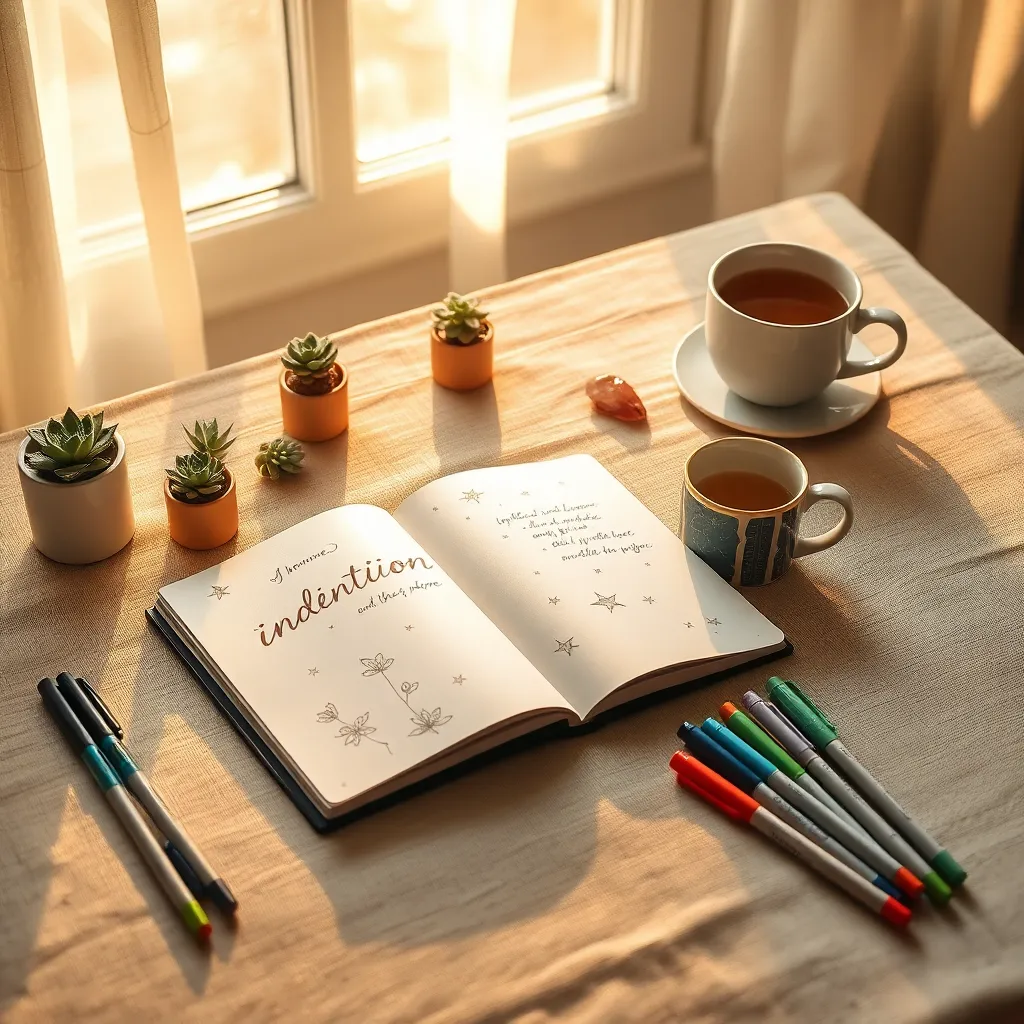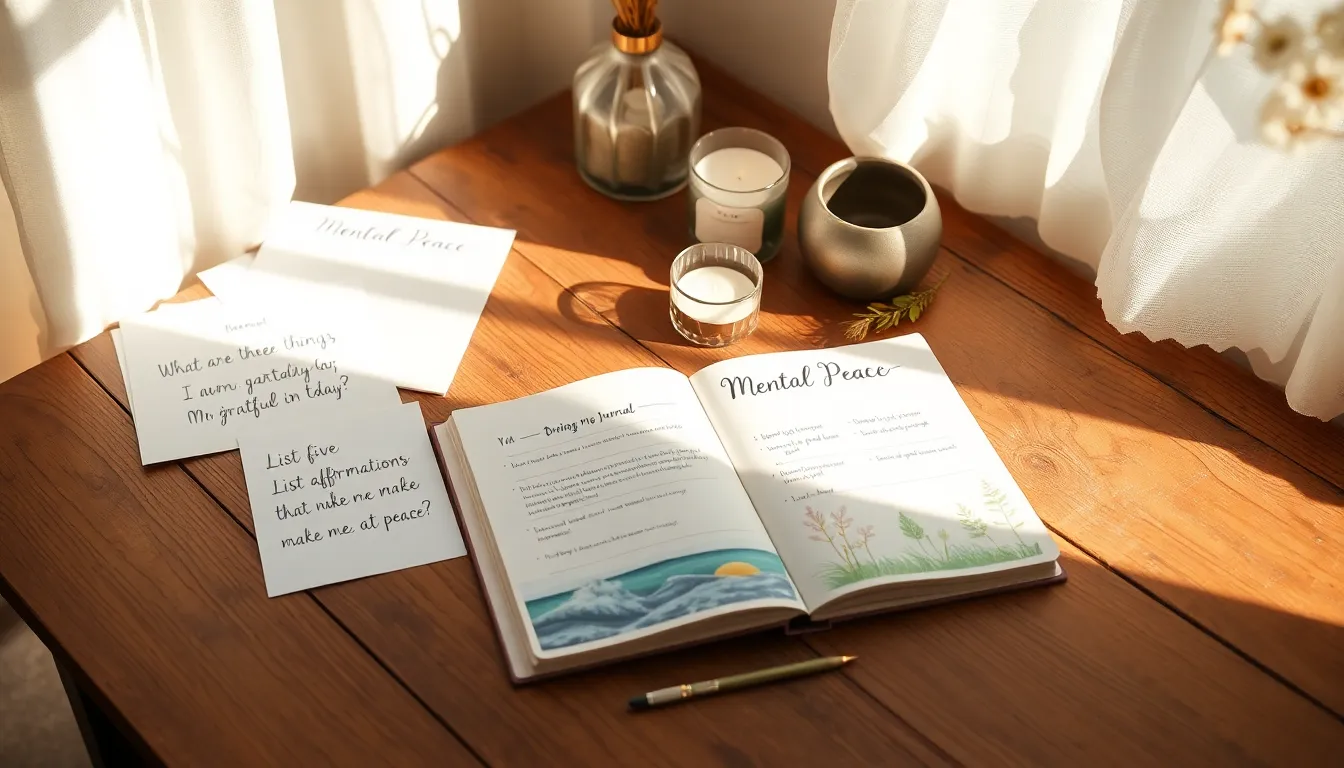In our fast-paced world, finding inner calm can feel elusive. Journaling offers a gentle path to mental peace, allowing thoughts to flow freely and emotions to settle like leaves on still water.
Dive into techniques that transform your journal into a sanctuary. Discover simple methods that help clear your mind and nurture a sense of tranquility, one page at a time.
Begin with a Gratitude List

Start your journaling with a simple gratitude list. This practice shifts focus to the positive, creating a peaceful mindset. Consider listing 3 things you appreciate each day, no matter how small.
To enhance your gratitude practice, use prompts like:
- “Today, I am grateful for…”
- “A moment that made me smile was…”
These encourage deeper reflection and nurture mental peace.
Incorporate Mindful Breathing Exercises

Embrace the calming power of breath by integrating mindful breathing into your journaling. Before writing, close your eyes and take three deep, slow breaths to center yourself. This practice helps clear the mind and enhances focus.
To deepen your journaling, consider prompts like:
- “How does focusing on my breath change my mood?”
- “What thoughts surface as I breathe mindfully?”
Use these reflections to cultivate mental peace and self-awareness.
Write to Release Daily Stress

Embrace daily journaling to release stress by writing freely for five minutes. This “brain dump” helps clear mental clutter and promotes calm.
Use specific prompts to guide your thoughts:
- What is one thing I can let go of today?
- What positive moment happened today?
These focus your mind and nurture peace.
Set Intention-Focused Journal Goals

Embrace intention by setting journal goals that align with your well-being. Begin with a simple aim like gratitude or self-reflection. This focus encourages consistency and deeper insights.
To start, use prompts like:
- “What am I thankful for today?”
- “How did I nurture myself today?”
These guide you toward mindful reflection and inner peace.
Explore Visual Journaling Techniques

Visual journaling uses art as a form of expression. Try drawing your emotions or creating a collage to capture your mood. This can be both therapeutic and insightful.
Begin with prompts like: “How do I feel today in colors?” or “What symbols represent my current mindset?” Embrace creativity to unlock deeper self-awareness and calm.
Conclusion: Creating Beautiful Outdoor Spaces
In our journey through “Journaling Techniques for Mental Peace,” we explored five transformative concepts that can enrich your relationships. First, the importance of self-reflection helps you understand your emotions, laying a foundation for empathy. Second, gratitude journaling shifts focus to the positives, fostering appreciation for your partner. Third, narrative journaling allows you to reframe conflicts, turning challenges into opportunities for growth. Fourth, goal-setting journals promote shared visions, aligning aspirations for the future. Lastly, mindfulness entries enhance present-moment awareness, deepening your connection.
To take immediate action, begin with a simple daily gratitude entry about your partner—just a few lines reflecting on what you cherish about them. This small step can cultivate a nurturing atmosphere in your relationship.
Bookmark this article as your go-to resource for cultivating mental peace and relationship harmony. By revisiting these journaling techniques, you can continuously nurture a deeper, more resilient connection with your loved ones.
Embrace these practices, and watch your relationships flourish with understanding and joy. As you move forward, remember that the key to lasting relationship success is a commitment to growth and communication. Keep this guide close, and let it be your compass on the path to enduring love and connection.


